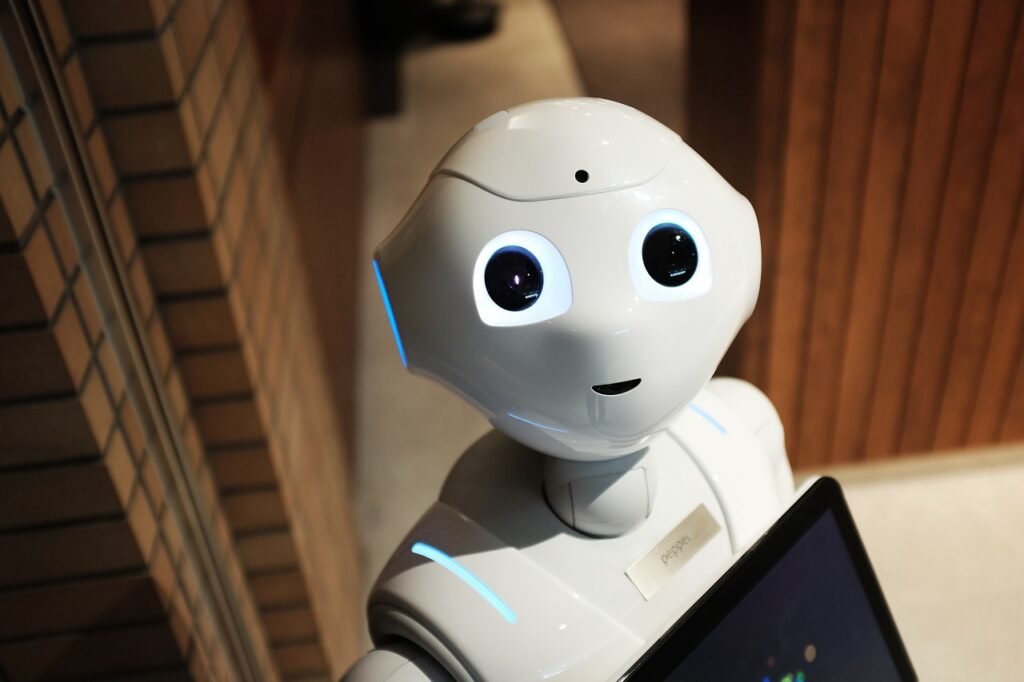Nairobi’s Robot Cafe: As Robots Take Over Hospitality, What About Human Labor?

- Nairobi’s Robot Cafe, a first in East Africa, uses robots named Claire, R24, and Nadia to serve customers.
- The robots, controlled by human waiters via an iPad, are primarily for entertainment, says owner Mohammed Abbas.
- Despite fears of job loss due to automation, cafe manager John Kariuki insists robots cannot replace the human touch in service.
- The cafe’s initiative reflects Nairobi’s position as a tech hub and sparks global conversation on balancing tech advancement and human labor.
In the heart of Nairobi, Kenya, a unique dining experience is captivating locals and tourists alike. The Robot Cafe, believed to be the first of its kind in East Africa, is serving up meals with a side of technology. The cafe, a testament to Nairobi’s vibrant tech industry, has introduced three robots to its service staff, creating a buzz and drawing curious customers from far and wide.
The robots, named Claire, R24, and Nadia, glide among human waiters, delivering food to mesmerized customers. They are not programmed for full conversations but can announce, Your order is ready, Welcome. Customers then press an exit button after collecting their food from the robot’s tray. The robots are controlled by waiters through an application on an iPad, demonstrating a seamless blend of human and robotic service.
The owner of the Robot Cafe, Mohammed Abbas, explains that the robots were acquired for entertainment purposes. Having experienced robot service in Asian and European countries, he decided to invest in them for his Nairobi establishment. Despite the high cost of importing the robots, Abbas believes the investment has paid off, as the restaurant is often busy with customers eager to experience the novelty of robot service.
The Human-Robot Coexistence Debate
However, the introduction of robots into the service industry has sparked concerns about the future of human labor. The fear of job losses due to automation is palpable among workers, particularly in Africa, where the median age is 19 years. The youthful population, many of whom rely on jobs in the service industry, could be significantly impacted if robotic technology continues to advance and replace human labor.
Addressing these concerns, John Kariuki, the cafe’s manager, assures that the robots are not a replacement for human waiters. He emphasizes that the robots cannot offer all services and that human touch is still essential in the restaurant’s operations. At no point are the robots able to fully function in all the services that are supposed to be ongoing in the restaurant without the human touch, Kariuki said. He further noted that the robots are too expensive to acquire if the goal is to save money.
Edith Ojwang, a hospitality industry expert, also weighed in on the issue. She believes there’s room for both robotic and human service to coexist in the industry. According to Ojwang, the hospitality industry’s diverse nature means that some clients will prefer robotic service and full automation, while others will prefer the warmth and personal touch that comes with human service.
Global Trends and Local Implications
The introduction of robot waiters in Nairobi is not an isolated incident. Globally, there has been a growing trend of integrating technology into various sectors, including the hospitality industry. For instance, in Japan, a hotel staffed almost entirely by robots was opened in 2015. However, the hotel later had to scale back its robotic workforce due to numerous issues, reinforcing the notion that while robots can enhance service delivery, they cannot entirely replace the human touch.
The Robot Cafe’s initiative is a clear indication of Nairobi’s position as a tech hub in the East African region, earning it the nickname The Silicone Savanna. The city is known for its various tech startups and innovations, and the introduction of robot waiters is just another feather in its tech-cap.
While the novelty of robot service is drawing crowds for now, the long-term implications of this technological integration are yet to be seen. As the world continues to grapple with the balance between technological advancement and job security, the Robot Cafe in Nairobi serves as a microcosm of this global issue.
In conclusion, the Robot Cafe in Nairobi is a testament to the city’s vibrant tech industry and its willingness to embrace innovation. However, it also highlights the ongoing global conversation about the balance between technological advancement and human labor. As we move forward, it will be crucial to ensure that technological progress does not come at the expense of human jobs and livelihoods. The cafe’s experience will undoubtedly provide valuable insights into the coexistence of human and robotic labor, particularly in the service industry.












Post Comment